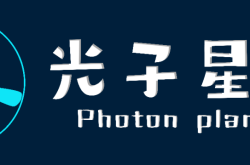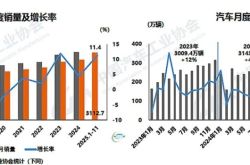Billion-chip unicorns line up for IPO, who is anxious?
![]() 09/26 2024
09/26 2024
![]() 608
608

"Core" Original — NO.56
Whoever can be down-to-earth first without empty talk will go further.
Produced by I Xinchao IC
ID I xinchaoIC
Image I unsplash
Tencent has invested in 6 rounds, and Suiyuan Technology has initiated an IPO.
Recently, Shanghai Suiyuan Technology Co., Ltd. (hereinafter referred to as "Suiyuan Technology") completed the listing counseling registration at the Shanghai Securities Regulatory Bureau, with China International Capital Corporation Limited (CICC) as the counseling securities firm.
As a super unicorn in the AI chip field, Suiyuan Technology was born with super strong configurations. Founder Zhao Lidong comes from the prestigious Radio Engineering Department of Tsinghua University, known in the chip industry, and has spent many years struggling in the semiconductor industry in Silicon Valley before returning to China to start his own business. In 2018, when the domestic chip industry was in turmoil, he founded Suiyuan Technology with AMD colleague Zhang Yalin to enter the AI chip field.
Overseas returnees with years of experience in major chip companies were precisely the entrepreneurial profiles that VC/PE investors were keen on at that time. Since its establishment in 2018, Suiyuan Technology has attracted substantial investments and completed nearly 7 billion yuan in financing, with Tencent being one of the largest investors. According to Hurun Research's "2024 Global Unicorn List", Suiyuan Technology is valued at 16 billion yuan, ranking 482nd globally.
With the AI wave approaching, the AI chip market seems to be ushering in a period of dividends. But who can seize the opportunity and stay at the forefront? The "first AI chip stock" Cambricon has suffered losses and seen its share price plummet, so where will Suiyuan Technology's path to the capital market lead?
Tsinghua alumni join forces with former colleagues
Returning to China to start a super unicorn with a valuation of 16 billion yuan
01
The timing of entrepreneurship is important, but industrial experience is particularly valued in chip startups.
Before founding Suiyuan Technology, Zhao Lidong had already gained considerable influence in the chip industry. He graduated from the 85th grade of the Department of Wireless Communications at Tsinghua University (also known as EE85). The EE85 class can be considered an invincible dream team in the chip industry, having produced notable figures such as Yu Renrong, the founder of Well Lead, Zhu Yiming, the founder of GigaDevice, Feng Chenhui, the co-founder of ZTE Microelectronics, and Zhao Lixin, the founder of GalaxyCore.
After graduating from Tsinghua University, Zhao Lidong went to Utah State University in the United States to study electronics and computer science, and spent more than 20 years in the semiconductor industry in Silicon Valley, where he served as Senior Director of Product Engineering at AMD, responsible for the development of key intellectual property (IP).
With decades of experience in the chip industry, Zhao Lidong has become a participant and backbone in the rise of this industry. He participated in the establishment of AMD's China R&D Center and was responsible for the negotiation and preparation of a series of major projects during his tenure at RDA Microelectronics and Tsinghua Unigroup.
Based on years of industrial experience, Zhao Lidong keenly predicted that the chip industry was entering a new wave of entrepreneurial opportunities. In 2018, Zhao Lidong and his former colleague Zhang Yalin founded Suiyuan Technology in Zhangjiang, Shanghai, naming it "Suiyuan" with the implication that "the fire of the chip can spread like wildfire."
In a media interview, Zhao Lidong revealed that when Suiyuan Technology was founded three years ago, it aimed to create "big chips." At the time, there were three entrepreneurial options: CPU, GPU, and AI. In the end, Suiyuan Technology chose the more challenging field of cloud-based AI training chips and dedicated itself to developing AI computing chips. The mainstream path in the global AI chip market is to focus on inference before training, and many domestic AI startups also prioritize inference chips.
This is because training chips are more difficult, have higher barriers, and have longer development cycles, requiring the latest semiconductor processes and advanced packaging technologies. From the perspective of the number of masks used in chip wafer fabrication alone, the difficulty of developing AI training chips compared to AI inference chips is akin to building a 70-80-story building versus a 20-30-story building.
Suiyuan Technology's choice of the AI training chip field is a testament to its solid technical strength and courage in predicting market prospects. However, many people may not realize that when Suiyuan Technology was just starting out, the entire company consisted of only three people, and even computers and development environments had to be prepared from scratch.
Therefore, Suiyuan Technology recruited a team while completing the entire process of chip design, power-on, tape-out, and mass production. In 2019, Suiyuan Technology successfully launched the "Suisi" AI training chip and the "Yunsui T10" AI training accelerator card based on the "Suisi" chip within a year. Meanwhile, the Suiyuan Technology team expanded to 150 people, with the majority coming from well-known semiconductor companies and having experience in mass production of large chips.
Subsequently, Suiyuan Technology established two product lines for cloud training and cloud inference. In July 2021, it released its second-generation AI training products, including the "Suisi 2.0" chip and the "Yunsui T20" training accelerator card and "Yunsui T21" training OAM module based on Suisi 2.0. In December, it released the second-generation cloud AI inference accelerator card, "Yunsui i20."
However, Suiyuan Technology is not limited to selling chips but aims to create a full-stack product ranging from hardware to software to systems.
From a strategic perspective, Suiyuan Technology is not content with merely selling chips but aims to create a new paradigm for local intelligent computing centers, providing users with more efficient and cost-effective solutions that encompass hardware, software, and systems, supporting computing power across various industries.
Currently, AI training chips have been iterated to the second-generation Suisi 2.0, and the company has also developed multiple AI inference chips to provide underlying computing power services to internet companies, cloud vendors, operators, and research institutions.
This is a challenging path. Amid domestic computing power shortages, it is crucial for domestic AI chip manufacturers to reduce the cost of migrating training products and smoothly complete technical support work. On this basis, Suiyuan Technology also needs to consider how to monetize its intelligent computing centers.
Behind Round After Round of Luxurious Financing
A Group of Anxious Investors
02
Will the countless moments of glory become a sweet burden?
Even before the chip investment boom spread, Suiyuan Technology had already become a key target for a handful of investors, with Zhen Fund being one of the proactive ones.
In a report by ChinaVenture, details of Zhao Lidong's interactions with investors were mentioned. As early as 2018, Zhao Lidong met with Wang Qiang, co-founder of Zhen Fund, and Fang Aizhi, founding partner of Zhen Fund. He soon received what Zhao Lidong considered at the time to be "the most friendly term sheet in the industry." When Zhao Lidong was still hesitant, Fang Aizhi was more resolute: "I mentioned to many people at the time that Suiyuan Technology had great prospects and was worth a try," she said.
Although not many investment institutions focused on chips at the time, there were quite a few investors who favored Suiyuan Technology. In April 2018, less than a month after its establishment, Suiyuan Technology secured nearly 30 million yuan in seed round financing from investors including Yihe Capital (a fund under Wuyuefeng Capital), Zhen Fund, Datai Capital, Yunhe Capital, and Shanghai Venture Capital Investment Corporation Limited.
Shortly thereafter, the most important investor in Suiyuan Technology's growth journey emerged. In July 2018, Suiyuan Technology secured a Pre-A round of financing amounting to 340 million yuan, with Tencent as the strategic lead investor and seed round investors participating. As a result, Suiyuan Technology became the first and only domestic AI chip startup to receive strategic investment from Tencent.
For the newly established Suiyuan Technology, Tencent's support went beyond financial backing, also bringing powerful software technology assistance. Zhao Lidong stated in a public interview, "We chose to accept strategic investment from Tencent because of its advantages in data, business scenarios, and algorithm teams."
Tencent's rich cloud services and data center resources provide ideal application scenarios for AI training chips. Such cooperation can help Suiyuan Technology achieve deep integration during the initial stages of product design, enabling new products to be quickly deployed upon launch.
For investors, Tencent Investment's Managing Director Yao Leiwen believes that as China's industries undergo upgrades, the country needs to master independently controllable technologies in high-tech industries, and AI chips present a valuable opportunity for Chinese enterprises to overtake in the race for technological advancement. As a result, Tencent has become Suiyuan Technology's most steadfast supporter, investing in the company six consecutive times. Previously, Tencent and Suiyuan Technology jointly developed an AI inference chip, "Zixiao," which has achieved more than twice the cost-effectiveness of similar products in the industry in OCR text recognition, smart meetings, and image and voice noise reduction.
In its six years of existence, Suiyuan Technology has completed ten rounds of financing, raising nearly 7 billion yuan in cumulative funding and achieving a valuation of 16 billion yuan. As a star unicorn in the chip industry, Suiyuan Technology boasts an impressive lineup of investors, including Tencent, Zhen Fund, Yihe Capital, Yunhe Capital, Datai Capital, Shanghai Venture Capital Investment Corporation Limited, as well as renowned institutions such as Redpoint China, Haisong Capital, Sunshine Capital, Zhongsheng Capital, Wuyuefeng Capital, CPE Source Peak, CICC Capital, Primavera Capital, subsidiaries and industrial funds under Shanghai International Group, Meitu, Yuntai Capital, Hongzhuo Capital, GF Securities Capital, Ruian Datai, and Pudong Investment Holding Group.
A closer examination reveals that Suiyuan Technology has a forward-thinking approach in selecting investors, with a particular focus on the strategic resources they bring. For instance, Wuyuefeng Capital's strengths in integrating the integrated circuit industry have provided Suiyuan Technology with valuable strategic resources and value. Another investor, the internet company Meitu, can highly complement Suiyuan Technology's full-stack capabilities in AIGC foundational and vertical large models and diversified applications.
Suiyuan Technology's financing journey offers a brief review of the bustling peak period of chip investment. As a super unicorn in the chip industry, Suiyuan Technology is indeed a typical case of this chip boom. It demonstrates that there are still investors daring to enter the challenging chip industry and technology companies willing to forge ahead alongside chip enterprises.
Now that Suiyuan Technology has embarked on its journey to prepare for an IPO, will the "big bets" made by investors finally pay off?
Is the domestic AI chip IPO wave here?
03
Following Suiyuan Technology, Biren Technology has also initiated listing counseling for a STAR Market IPO.
Like Suiyuan Technology, Biren Technology boasts a luxurious founder team, a star-studded cast of investors, and a series of escalating valuations, making it a hotly sought-after star in the chip industry.
However, unlike Suiyuan Technology, Biren Technology's founder Zhang Wen is not from the chip industry but is rather an outsider skilled at resource integration. Dr. Zhang Wen graduated from Harvard Law School and has leveraged his extensive knowledge in law, finance, and business to play a pivotal role in numerous large mergers and acquisitions, including serving as President of the renowned AI company SenseTime Group.
In 2019, Zhang Wen founded Biren Technology, deciding to develop an original general-purpose computing architecture, establish an efficient hardware and software platform, and provide integrated solutions in the field of intelligent computing. Despite having no technical background in chips, Zhang Wen's fundraising journey was remarkably smooth. Even Zhang Wen himself admitted, "At the time, I didn't even know any GPU experts. If I were an investor back then, I wouldn't have dared to invest in Zhang Wen."
Nevertheless, Biren Technology's fundraising pace stunned many. From its incorporation in September 2019 to the completion of its Series B funding in March 2021, Biren Technology raised over 4.7 billion yuan in just 18 months, setting a domestic record for chip startups in terms of fundraising.
As Biren Technology's valuation soared, Zhang Wen was labeled a capital maniac. However, the company soon delivered results. In 2022, Biren Technology unveiled its first general-purpose GPU chip, BR100, based on an original self-developed architecture, setting a global computing power record. It was also the first domestic general-purpose GPU chip to adopt Chiplet technology, the new-generation host interface PCIe 5.0, and support the CXL interconnect protocol. Biren Technology stated that the official launch of BR100 marked the first time a Chinese enterprise had broken the global computing power record for general-purpose GPUs, previously held by international giants.
Throughout its journey, Biren Technology has continued to raise funds, with a total of over 5 billion yuan in public fundraising. Investors include Qiming Venture Partners, IDG Capital, Walden International, Ping An Group, Hillhouse Capital, Gree Capital, Songhe Capital, Yunhui Capital, Guosheng Capital, China Merchants Capital, and other prestigious institutions.
Amidst controversies, Biren Technology has continued to make breakthroughs. In 2024, it unveiled its original heterogeneous GPU collaborative training solution for the first time, enabling the coexistence of domestic and NVIDIA GPUs, facilitating the rapid deployment and migration of domestic GPUs.
Now, as Biren Technology enters the IPO stage, it hopes to accelerate its market layout and technological research and development through further capital operations.
However, this wave of IPOs may no longer replicate the glory days of soaring valuations upon listing. The issues of commercialization and profitability should be a sharp sword hanging over domestic chip companies, especially AI chip companies. Cambricon, with the halo of being the "first AI chip stock on the STAR Market," has yet to achieve profitability. In the first half of 2024, Cambricon reported revenue of 64.7653 million yuan, a year-on-year decrease of 43.42%, and a net loss of 530 million yuan, compared to a loss of 544 million yuan in the same period last year.
Meanwhile, amidst accelerating global AI technological innovations, domestic AI chips seeking to capture market share must confront the deep technological and ecological barriers of giants like NVIDIA. In the fierce competition for customers, inflated valuations do not provide much assistance but may instead become shackles to a company's IPO process.
The only way forward is to accelerate technological iterations, seize the market at a faster pace, or explore new application scenarios. Currently, the above-mentioned companies each have their strengths in technological research and development, market positioning, and strategic planning. For instance, Biren Technology has made significant breakthroughs in high-performance computing; Suiyuan Technology has deep technical expertise and a well-established product line in cloud training chips; and Cambricon is renowned for its innovative AI processor architecture design, possessing core technologies and products with independent intellectual property rights.
In fact, amidst challenging exit conditions, while going public is undoubtedly important, the bubble inflated by high valuations is ultimately an illusion. Companies must understand that creating the best products and consistently generating profits are the sources of all success. However, the road to commercialization is long and arduous, and only those who can be down-to-earth and avoid empty talk can go further.
Disclaimer:
1. The content of this article is original to Xinchao IC, and the views and opinions expressed herein are for reference only and do not constitute any investment advice. All information cited in this article is sourced from publicly available market data, and our company makes no guarantee as to the accuracy or completeness of such information.
2. This article may not be reprinted, copied, published, or quoted without permission. For reprinting, please contact us.





